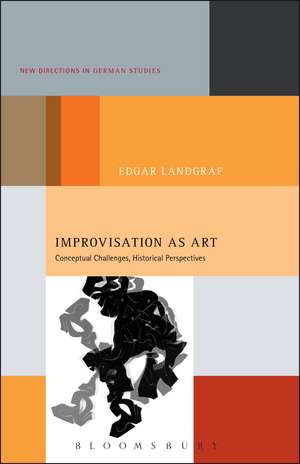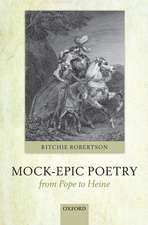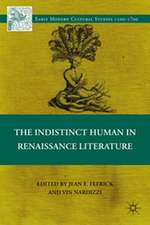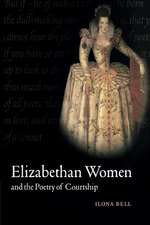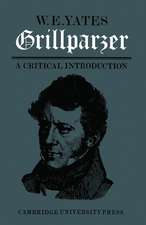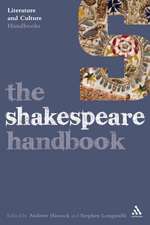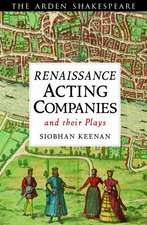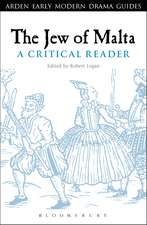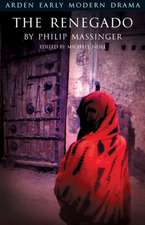Improvisation as Art: Conceptual Challenges, Historical Perspectives: New Directions in German Studies
Autor Dr. Edgar Landgrafen Limba Engleză Paperback – 28 mai 2014
Din seria New Directions in German Studies
- 14%
 Preț: 183.70 lei
Preț: 183.70 lei -
 Preț: 470.90 lei
Preț: 470.90 lei - 8%
 Preț: 145.46 lei
Preț: 145.46 lei - 11%
 Preț: 219.84 lei
Preț: 219.84 lei - 23%
 Preț: 190.50 lei
Preț: 190.50 lei -
 Preț: 169.03 lei
Preț: 169.03 lei -
 Preț: 217.09 lei
Preț: 217.09 lei - 7%
 Preț: 134.49 lei
Preț: 134.49 lei -
 Preț: 217.62 lei
Preț: 217.62 lei - 21%
 Preț: 214.78 lei
Preț: 214.78 lei - 30%
 Preț: 718.85 lei
Preț: 718.85 lei - 22%
 Preț: 237.93 lei
Preț: 237.93 lei - 22%
 Preț: 225.77 lei
Preț: 225.77 lei - 22%
 Preț: 256.77 lei
Preț: 256.77 lei - 22%
 Preț: 225.41 lei
Preț: 225.41 lei - 23%
 Preț: 222.46 lei
Preț: 222.46 lei - 30%
 Preț: 714.12 lei
Preț: 714.12 lei - 30%
 Preț: 568.22 lei
Preț: 568.22 lei - 21%
 Preț: 218.36 lei
Preț: 218.36 lei - 11%
 Preț: 218.47 lei
Preț: 218.47 lei - 13%
 Preț: 186.35 lei
Preț: 186.35 lei - 30%
 Preț: 569.94 lei
Preț: 569.94 lei - 21%
 Preț: 218.83 lei
Preț: 218.83 lei - 22%
 Preț: 256.20 lei
Preț: 256.20 lei - 14%
 Preț: 190.06 lei
Preț: 190.06 lei - 23%
 Preț: 197.14 lei
Preț: 197.14 lei - 13%
 Preț: 255.11 lei
Preț: 255.11 lei - 22%
 Preț: 226.79 lei
Preț: 226.79 lei - 30%
 Preț: 568.14 lei
Preț: 568.14 lei - 14%
 Preț: 191.85 lei
Preț: 191.85 lei -
 Preț: 183.24 lei
Preț: 183.24 lei -
 Preț: 231.81 lei
Preț: 231.81 lei - 22%
 Preț: 230.24 lei
Preț: 230.24 lei
Preț: 183.24 lei
Preț vechi: 213.96 lei
-14% Nou
Puncte Express: 275
Preț estimativ în valută:
35.06€ • 36.37$ • 29.24£
35.06€ • 36.37$ • 29.24£
Carte disponibilă
Livrare economică 06-20 martie
Preluare comenzi: 021 569.72.76
Specificații
ISBN-13: 9781628929577
ISBN-10: 162892957X
Pagini: 176
Dimensiuni: 140 x 216 x 18 mm
Greutate: 0.25 kg
Editura: Bloomsbury Publishing
Colecția Bloomsbury Academic
Seria New Directions in German Studies
Locul publicării:New York, United States
ISBN-10: 162892957X
Pagini: 176
Dimensiuni: 140 x 216 x 18 mm
Greutate: 0.25 kg
Editura: Bloomsbury Publishing
Colecția Bloomsbury Academic
Seria New Directions in German Studies
Locul publicării:New York, United States
Caracteristici
Analyzes the theoretical challenges presented by improvisation in performance studies, deconstruction, and popular thought.
Notă biografică
Edgar Landgraf is Associate Professor of German in the Department of German, Russian, and East Asian Languages at Bowling Green State University, USA.
Cuprins
AcknowledgmentsIntroduction: On Conceptualizing Improvisation1. Performance, Inventiveness and Improvisation: Theoretical Contentions1.1 Derrida's Inventiveness1.2 Calculating Incalculability: The Neocybernetic Alternative1.3 From Iteration to Improvisation2. Indescribability, Perfection, Unpredictability: Improvisation and Aesthetic Autonomy2.1 Instrumentalizing Improvisation? Johann Wolfgang von Goethe2.2 Improvisation and Aesthetic Autonomy2.3 Improvisation and Aesthetic Perfection: Karl Philipp Moritz2.4 Improvisation and the Artist-Genius3. Staged Improvisation: The Generative Principles of Romantic Irony3.1 Reframing the Space of the Theater3.2 Staged Improvisation3.3 Romantic Principles of Artistic Production3.4 Social Bearings4. Improvisation, Agency, Autonomy. Heinrich von Kleist and the Modern Predicament4.1 Facilitating Prohibitions4.2 Improvisation as Political Practice4.3 The Incalculability of Calculation4.4 Kleist's Pedagogical ProgramConclusion: Experiencing Improvisation as ArtWorks Cited
Recenzii
"Landgraf writes with refreshing clarity, showing how neocybernetics-systems theory in the line from Heinz von Foerster to Niklas Luhmann-offers concepts that resolve prior impasses in theoretical approaches to improvisation. His nuanced treatments of Derrida and Luhmann on modernity and invention rival Cary Wolfe's seminal work at this important intersection. Landgraf's itinerary modulates effectively from keen textual detail to broad historical and aesthetic matters. Establishing links from German Romantic practice to classical, premodern, modernist, and postmodernist artistic forms, Improvisation as Art develops a superbly coherent and persuasive argument, well positioned in the midst of significant and timely critical debates." -- Bruce Clarke, Professor of Literature and Science, Texas Tech University, USA, and co-editor of The Routledge Companion to Literature and Science.
"Edgar Landgraf's Improvisation as Art marks a genuine intellectual breakthrough. It not only unfolds a highly original account of the emergence of aesthetic autonomy around 1800, but also recasts the terms of the ongoing effort to conceptualize artistic improvisation. Without a trace of tendentiousness, Landgraf develops a "neocybernetic" critique of major theoretical positions (e.g., Butler, Derrida) and introduces the reader along the way to a flexible methodology of cultural analysis. Historical erudition, intellectual agility, and commitment to clarity are the salient features of Landgraf's scholarly voice. His book is an abundant conceptual resource to which readers will often return." -- David E. Wellbery, LeRoy T. and Margaret Deffenbaugh Carlson University Professor, Department of Germanic Studies, University of Chicago, USA
"Both students and scholars of 18th and early 19th-century German literature, as well as anyone interested in modern notions of art and improvisation will benefit highly from this erudite and clearly written study, which expands on Luhmann's descriptive and avowedly value-free, sociological theory of art and makes it accessible to a wider audience. By including in the discussion also an opponent of systems theory, Jacques Derrida, who insisted on the 'incalculability of the incalculable' and on openness for the advent of 'the other' (19-29),Landgraf contributes to current debates on ideas of freedom and the role of art and/asimprovisation in society, inviting our participation." - German Quarterly (Winter 2012, reviewed by May Mergenthaler, The Ohio State University)
"Edgar Landgraf's Improvisation as Art marks a genuine intellectual breakthrough. It not only unfolds a highly original account of the emergence of aesthetic autonomy around 1800, but also recasts the terms of the ongoing effort to conceptualize artistic improvisation. Without a trace of tendentiousness, Landgraf develops a "neocybernetic" critique of major theoretical positions (e.g., Butler, Derrida) and introduces the reader along the way to a flexible methodology of cultural analysis. Historical erudition, intellectual agility, and commitment to clarity are the salient features of Landgraf's scholarly voice. His book is an abundant conceptual resource to which readers will often return." -- David E. Wellbery, LeRoy T. and Margaret Deffenbaugh Carlson University Professor, Department of Germanic Studies, University of Chicago, USA
"Both students and scholars of 18th and early 19th-century German literature, as well as anyone interested in modern notions of art and improvisation will benefit highly from this erudite and clearly written study, which expands on Luhmann's descriptive and avowedly value-free, sociological theory of art and makes it accessible to a wider audience. By including in the discussion also an opponent of systems theory, Jacques Derrida, who insisted on the 'incalculability of the incalculable' and on openness for the advent of 'the other' (19-29),Landgraf contributes to current debates on ideas of freedom and the role of art and/asimprovisation in society, inviting our participation." - German Quarterly (Winter 2012, reviewed by May Mergenthaler, The Ohio State University)
